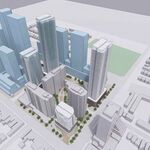Northern Light
Superstar
Coun. Sheen says that despite the contentious decision by council, it’s not “like the sky is going to fall. We will still have to bargain, negotiate and hammer out what these communities will look like.” The only immediate effect, he said, is that the “lands went from being zoned agriculture to residential and so these land values went up, probably quite a bit.”
Councillor Sheen seems a tad obtuse..............if I'm being kind............ its not like its a big deal to approve redevelopment of 2,000 acres of agricultural and ecological land for development............ after all we haven't hammered how we're going to destroy what's there.......... so it could be slightly better or worse destruction than what you think........... Pfft.
Last edited:




